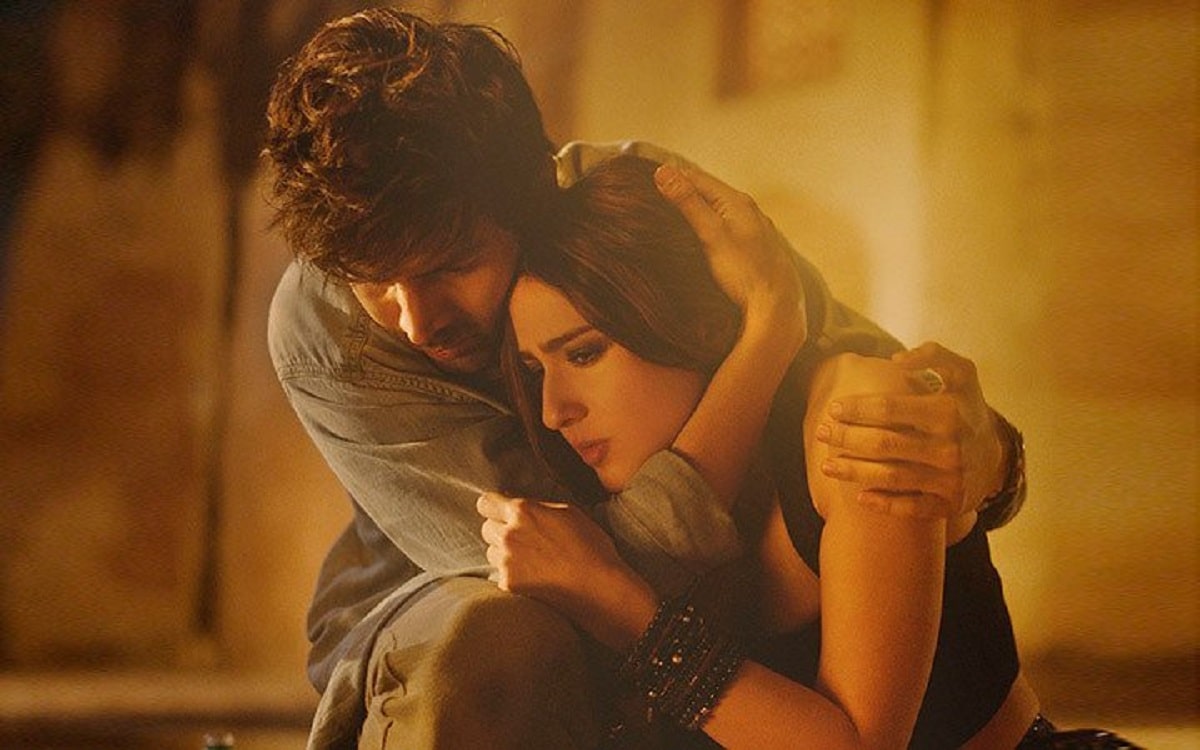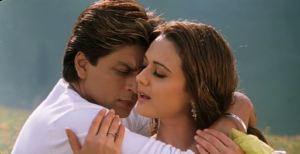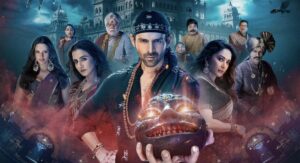
What happens when a filmmaker becomes vastly distant from the ways of the world? We witnessed this phenomenon hit Aditya Chopra hard when he attempted to showcase things that he perceived to be the actual issues of today’s youth in his 2016 caper Befikre. The stakes are even higher for Imtiaz Ali who has reached a space where the viewers no longer mind him saying the same story over and over again. It’s all about the canvas, the characters, the performances and overarching feeling that his films promise to convey. In his latest directorial effort Love Aaj Kal, Imtiaz tries to weave the central story on a framework that was previously set in his 2009 hit by the same. However, the villain, as was the case with Ali’s previous outings is neither the protagonists’ troubled minds nor societal dogmas. It is, well, a woman’s desire to have a career.
Love Aaj Kal feels like a story that was written for youngsters living the ‘80s. I could totally picture a Rajshri film where a saree-clad Meenakshi Seshadri struggled with the very same dilemma – How do I balance my career and personal life? Who will roll the ‘rotis’ at home? In this day and age, where urban youngsters (irrespective of their genders) are inculcated with the urgency for a career way early in their lives, it is baffling to imagine how this predicament exists. It isn’t a Catch-22 situation as Imtiaz wants it to be. Instead, what it propagates is borderline sexism. Love Aaj Kal never asks its leading man’s ability and accountability to hold the relationship together while also doing well in his career. The women, including the female lead’s mother, are shown as embittered beings for nurturing rather basic dreams such as to have a good professional life.
In Imtiaz’s widely appreciated Tamasha, career becomes an active catalyst that prevents Ved (Ranbir Kapoor) from listening to his heart. Yet, the film never objects to the very existence of the well-paying career option that he is forced to take. The culprit here is the doctrines of a conditioned society which trickles down to his traditional family and eventually to him. It all makes perfect sense. Whereas in Love Aaj Kal, we get depressing, meaningless passages such as the one where the young heroine equates her work (which she enjoys) to a calming boyfriend. These are times where we are forced to alter our progressive thoughts and go three decades back to think, “Why should a girl of marriage age be work so hard?”
The film kicks off with Zoe (Sara Ali Khan) and Veer (Kartik Aaryan) attempting a casual fling which, for reasons best known to Imtiaz Ali, somersaults as the latter feels something special within. The film tries to portray the mind space of today’s cruising youngsters but his characters are downright uninteresting. They are too cosmetic and their origins clearly are from a writer whose belief sets are irreversibly traditionalist. While Imtiaz’s idea might have been to project the generation the way it is, his emphasis on monogamous relationships seldom feels organic. His statement is that love (at least in Love Aaj Kal) is about holding onto a partner who exudes a sense of comfort and the definitive idealism of mushy romantic novels. The longing, the exasperation – none of it – come off spontaneously, especially when performed by leads who barely know their craft.
Enter Raghu, the owner of a quaint suburban café where Zoe frequents. Even though it seems a little too early in life for the not-so-old man to retire to this level of inactivity and Rumi-ness, the character (essayed with élan by Randeep Hooda) is breath of fresh air. Raghu is a storyteller whose inadvertent narration of his love story from the ‘90s with a woman named Leena fascinates Zoe. Imtiaz milks nostalgia to an extent that its brief existence threatens to overpower the film’s hollow contemporary portions. This is also because of the existence of an actual conflict between Raghu and Leena. While Kartik Aaryan’s interpretation of guilt and self-loathing is highly underwhelming, the yesteryear chapter, set in Udaipur and Delhi, does exude genuine feeling.
Debutante Aarushi Sharma who plays Leena gets to express herself quite well in a brief part. To spot an instance, she is simply terrific in a clumsily staged clandestine meeting in the ruins. Sharma’s sunshine-like presence has also got to do with the minimalism in the way her part is written as opposed to Zoe who comes off as Jab We Met’s Geet on steroids. Of course, there are ways to ace an over-the-top character but the journey begins on papers. Zoe is needlessly hysterical. The writing forces her to enunciate every word that she utters. The viral dialogue ‘Tum mujhe tang karne lage ho’ is one of the many lines that bite us hard. Even as she organizes a corporate event or when she merely ignores an email that confirms a job opportunity, Zoe is annoyingly ‘extra’. Ditto for her mother (Simone Singh) who indicates why this tendency could possibly be hereditary. Zoe is also saddled with ancillary scenes such as the one where she offers a silly, faux-feminist rationale behind the organic action of unbuttoning her blouse before stepping into a corporate meeting. That said, there are also ways to make a frenzied, confused character likeable. That does not happen because Zoe, besides being an obvious writing mishap, is played by an absolutely ill-equipped Sara Ali Khan. Her expressions are excessively pouty and her dialogue delivery, as noted before, belongs to amateur theatre and ‘80s masala potboilers. Kartik Aaryan displays no improvement from his past works and it doesn’t help that Veer expects him to mellow the decibel levels down. The actor makes a hopeless attempt to mimic Ranbir Kapoor (an Imtiaz Ali regular) and falls flat on his wooden face. It is half-sad and half-hilarious when he tries hard to lend finite touches to Veer’s awkward ways and ends up resembling a person with a developmental disorder.
Pritam’s soundtrack, despite minor influences that he derives from the previous Love Aaj Kal, is flavoursome. Mehrama, especially, is a bona fide romantic number with excellent lyrics by Irshad Kamil. Amit Roy’s cinematography is as mediocre as the overall filmmaking on display here. The excessive close-ups are jarring when there is some extraordinarily bad acting to put up with. Aarti Bajaj’s editing, at times, saves the day with slick jump cuts and dramatic slow-motion imagery. However, even her work stands compromised at the hands of a lifeless screenplay. The costumes and production design are immaculate in the ’90s portions but one wishes how the DOP could avoid putting the tasteless period filter to his otherwise picturesque frames.
As Love Aaj Kal ended, I felt the need for Imtiaz Ali’s brand cinema to evolve- in terms of thought processes and certain value sets which need a quick recheck. Way back in 2009, Imtiaz himself showed us how Meera (Deepika Padukone) couldn’t make peace with her dishy, well-mannered husband (Rahul Khanna). In 2020, we see Zoe strike dates with annoying men of all kinds. One is an environmentalist, another is a rich, desi opportunist and the list goes on. Is love all about finding that one nice, agreeable person and putting a full-stop to evolution? Is ‘happily ever after’ a glossy phrase that will handicap the way our minds function? Come to think of it, Imtiaz himself has given us more evolved and emotionally enriching characters. This also reminds me how Maya (Rani Mukerji) opted for a seemingly perfect Rishi (Abhishek Bachchan) in Kabhi Alvida Naa Kehna, only to find herself straying afterwards.
In Love Aaj Kal, there is a bizarre scene where Zoe arbitrarily breaks down in the midst of a make-out session with Veer. She simply couldn’t digest the perfection at that moment. Poor acting aside, I simply couldn’t decipher the sentiments involved in such shallowness trickling into a filmmaker’s repertoire which, albeit, is considered as textbooks cases for cinema tackling themes such as self-discovery. No, I didn’t feel for his heroine who desperately needed a millionaire’s proposal to come by so that she could listen to her heart. All I wondered was regarding the profitability behind running quaint cafes in bustling Indian cities when one is heartbroken, middle-aged or both.
Rating: ★★

